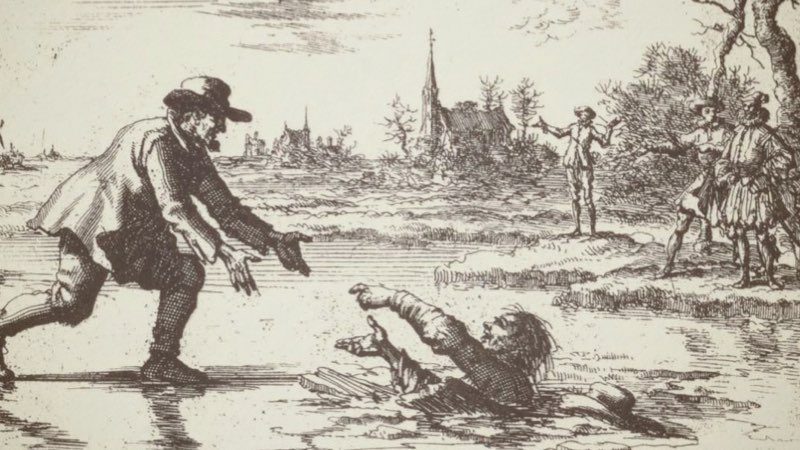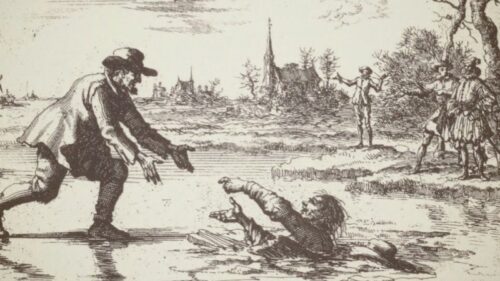-
68. The Fourth Persecution Of The Christians
Of The Fourth Persecution Of The Christians, Under Marcus Aurelius And Lucius Verus, Which Was Commenced About The Year 166 P. J. Twisck, in his Chronicle, gives as the beginning of the fourth persecution, the year A. D. 162; the writers of the Introduction to the Martyrs' Mirror of the Defenseless Christian, fix the beginning in the year 164 (page 37, col. 2); J. Gysius, in Hist. Mart., fol. 16, col. 2, places it in the year 168, and A. Mellinus makes no mention at all as to the exact time of that persecution. However, all these writers abound with accounts of the inhuman tortures, which the faithful martyrs had to suffer at that time. [Although P. J. Twisck has placed the fourth persecution, together…
-
67. Felicitas With Her Seven Sons
Felicitas With Her Seven Sons, Januarius, Felix, Phillipus, Sylvanus, Alexander, Vitalis And Martialis, Put To Death For The Faith, At Rome, AD 164 Felicitas was a Christian widow at Rome, and had seven sons, whose names were Januarius, Felix, Philippus, Sylvanus, Alexander, Vitalis, and Martialis. These lived together with their mother in one house, as an entire Christian church. Of the mother it is stated, that by her Christian communion, (conversation) which she had with the Roman women, she converted many to Christ. The sons, on their part, also acquitted themselves well by winning many men to Christ. Now, when the heathen priests complained of this to Antonius, the Emperor—who had resumed the persecution which had begun with Trajan, but had subsided—saying, that there were…
-
66. Lucius
Lucius, A Pious Christian, Also Put To Death At Alexandria, According To The Preceding Sentence, Together With Another, Who Made The Same Profession, About The Year 144 In Historia Ecclesia Eusebii Pamphilii Caesariensis, mention is made of a certain Lucius, who was greatly dissatisfied with the sentence and execution of the aforementioned pious man Ptolomeus, and, therefore demanded a reason for it from the judge, at the same time confessing himself a Christian; which cost him his life, even as it did the man for whom he interceded. The words in the book mentioned above are as follows: "When Lucius, who was also a Christian, perceived that so presumptuous a sentence was pronounced against Ptolomeus, he said to Urbicius (the judge): 'Pray, tell me, for…
-
65. Ptolomeus
Ptolomeus, A God-fearing Man, Put To Death At Alexandria, In Egypt, For The Faith In Jesus Christ, About The Year 144 It is stated that Ptolomeus was a pious and God-fearing man, who had converted his wife from the blindness of heathendom to the faith. He was apprehended for the truth of Christ. Asked, whether he was a Christian, he, as a lover of the truth, immediately confessed that he was. After this confession, he was cast into prison, in which he suffered so long as to become completely emaciated. Finally he was delivered to the judge Urbicius, who shortly afterwards had him put to death; and thus Ptolomeus became a faithful martyr of Jesus Christ, Compare Joh. Gysii Hist. Mart., printed at Dort, 1657,…
-
64. Getulicus, Symphorosa, Cerialus, Amantius, Saphira, Sabina
Getulicus, Symphorosa With He Sons, Cerialus And Amantius, Put To Death For The Faith, At Frivoli; And Saphira And Sabina At Rome, A. D. 136 Getulicus, a teacher at Frivoli in Italy, Symphorosa with her sons, and Cerialus and Amantius, were put to death in that city for the faith. It is also stated that Saphira, a maiden from Antioch, and Sabina, the widow of Valentinus, had to lay down their lives, at Rome, for the same reason. Joh. Gysii Hist. Mart., fol. 15, col. 4.
-
63. Severe Persecutions, A.D. 130
Severe Persecutions Of The Believers About The Year 130 About this time, writes P. J. Twisck, the instruments of the devil could not invent punishments severe enough, but what they considered the Christians worthy of. For they were watched in their houses as well as without; men cried out against them in all public places; they were scourged, stoned, and dragged about; their goods were plundered; they were apprehended; red-hot iron plates were applied to their bare bodies; they were placed in a certain instrument made to torture malefactors; they were put into the deepest and darkest places of the prisons, where they were slain, yea, they were afflicted with excruciating torments. P. I. Twisck, Chron., 2d book, for the year 130, page 39, col.…


